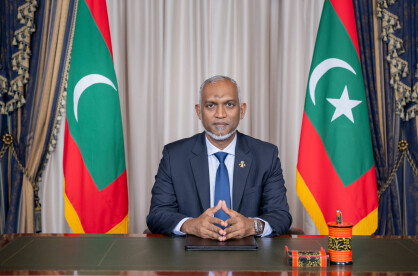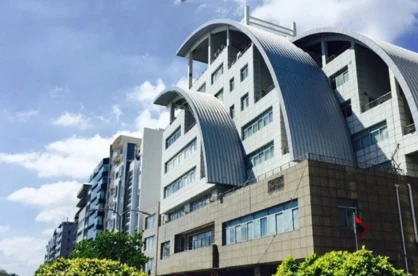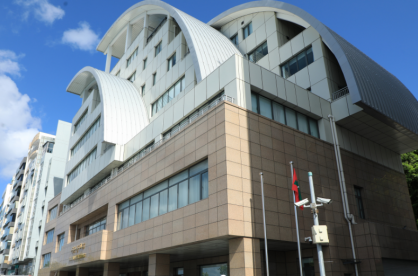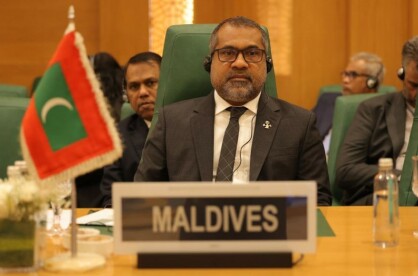The devolution of the Police
The continued politicisation of the Police as well as an organisational disconnect from their true goals has eroded public trust in the agency.

The continued politicisation of the Police as well as an organisational disconnect from their true goals has eroded public trust in the agency.

Policing is fairly straightforward in definition; maintaining public order and safety, enforcing the law, and then preventing, detecting, and investigating criminal activities. A police officer would be someone the people can trust to protect them, someone who would stand stalwart in the face of injustice, A police officer is an occupation children can be ambitious about. A police officer on the scene should mean everything is going to be alright.
Yet, as MFR has been pointing out with multiple write-ups, the reality is far from this idyllic concept. In countries of the slavic region, crime rates are so low that the incarceration facilities are forced to close down. In the US, the police allegedly plays an integral part in perpetrating the racial injustices faced by minority groups. In nations such as Malaysia, the police force plays a double-role of religious policing while reportedly partaking in casual bribery on the lower echelons. What story, then, can be told about the Maldivian situation?
First Established in 1933 as a police force under the reign of Sultan Mohamed Shamsuddeen III, the entity was disbanded as the existing military proved to be apt for the times. Later, in 1972, the police force was once again rekindled as a branch of the security force, known as the National Guards, under the administration of the Ministry of Public Safety. In time, with trial and error, the Ministry was renamed as the Ministry of Defence and National Security, and the National Security Service replaced the Guard. For the Police to become a civil entity, it took another 34 years, and in 2004, the Maldives Police Service was established under the Ministry of Home Affairs.
This was meant to ensure the police service was more a part of the community rather than the strict, specialised military forces, to introduce and implement standards found in countries such as the UK. The Maldives Police had humble beginnings, from just investigating Theft, Political and then Serious Crimes, to the wide array of work cut out for them today. The evolution of the Police Act over the years continues to define their prerogatives and ensure fairness and efficiency in their work, yet some of these changes appear tainted with politicised intentions.
It is 2021 now, and the Maldives Police Service has not exactly been the most loved entity of Maldivian governance.
In the beginning, in 2004, the officers who were at the helm of the entity were very highly trained professionals with the strictest discipline. This was a standard that should have endured the test of time and only improved the working capabilities of the Police, yet somehow it had gone downhill. Why should these people, under Commissioner Adam Zahir, bolstered by nigh unlimited funding for training and preparation under international aid and grants, slowly fade and exit the stage set for them?
The decay in the system is apparent when the police service seems overburdened with the work they were meant to do. This is the first possible reason that can be ascertained given how so many high profile cases lay in their case files gathering dust and no justice being delivered.
Multiple murder cases, from Dr. Afraasheem, reporter Rilwan, and then blogger Yameen, still get used as political leverage by political parties to claim, almost unambiguously and deceitfully, their determination for justice, yet the citizens are still wanting for answers. Petty theft cases, grand theft auto and gang violence seems to be inevitable risks of living in the city rather than issues being looked into and fixed.
Why the police service seems to be going through as much reshuffling as the executive and legislature is baffling. This is an entity whose cornerstone is impartiality and integrity, yet where are the people who were once at the helm? Where are Fairoosh, Riyaz, Waheed, and Atheef? Why do these names seem to prop up in political positions and not involved in the service they were sworn into, serving the people as they were meant to rather than in these politically motivated conversations?
The invasion of politics into the sanctity of ‘protect and serve’ is blatantly obvious when the current Police Commissioner is a family member of the current President. Taking a step further into the mire of political taint is the fact that the Police Board, tasked with overseeing the Police Force and ensuring they are doing their job properly under 75(a) of the recently enacted Police Service Act (Law No. 34/2020), is populated by politically appointed members.
Constantly berated by the public for enforcing traffic fines and challenges in a city system that is impossible to navigate by the exact word of law, and treated with contempt whenever their presence is felt in neighbourhoods, the Maldives Police Service is facing quite the challenge. The lack of results when it comes to heinous crimes of murder and political and financial crimes, while quite efficient in petty drug and traffic crimes, casts the light of doubt on the actual aim and objective of the service in practice.
The Maldives Police Service is faced with a steep hill to climb to regain public trust, and the first step in this journey will be to expel the political influence that has become too integral to their work. Their work, while honourable and much needed alongside the many presidential commissions set up for specific types of crimes and issues, needs to yield more results for the public.
With any changes to how they operate inciting more fear than a sense of security amongst the people, a revamping of the system, and a change in the mentality of those in leadership needs to happen before extensive measures have to be taken later.



